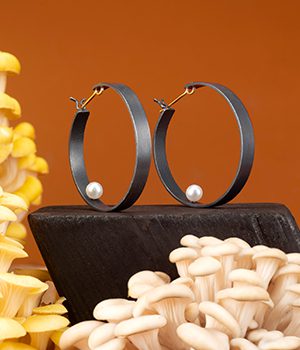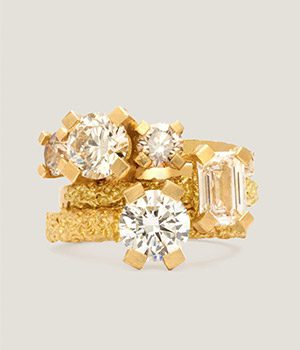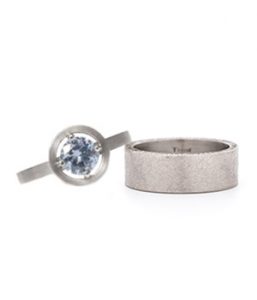Are lab grown diamonds ethical?
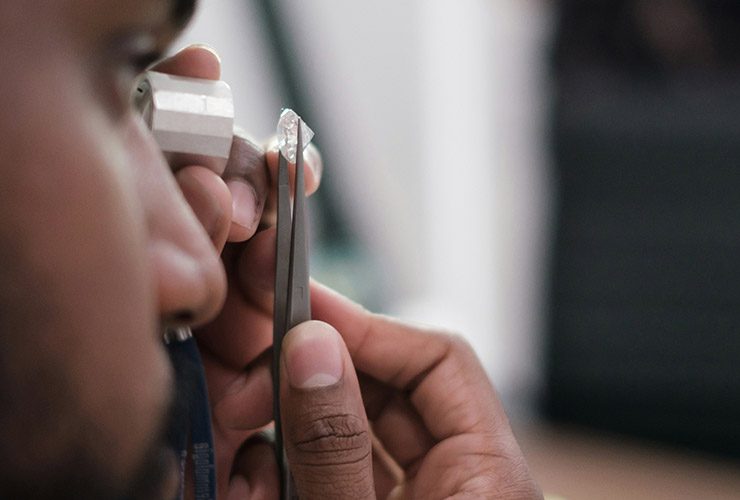
At e.g.etal, authenticity is at the heart of everything we do. So you won’t find any imitation gemstones or metals within our walls. And you won’t find any lab created diamonds.
For us, lab-grown diamonds will never have the same rarity, uniqueness and meaning as a natural stone that was formed over billions of years deep in the earth.
However, what about the claims that lab diamonds are more ethical or sustainable?
Eco Claims
Although lab-grown diamonds claim to lessen the environmental harm typically caused by traditional mining, the production process of lab diamonds can still be highly resource-heavy.
These methods often have a significant carbon footprint, particularly when the electricity used is derived from non-renewable energy sources. A large amount of energy is needed for these industrial processes, much of which is supplied by local power grids in countries that rely heavily on coal and natural gas.
In the United States, the Federal Trade Commission (FTC) has issued warnings to sellers of lab-grown diamonds, cautioning them against making unsupported claims such as calling their products ‘eco-friendly,’ ‘eco-conscious,’ or ‘sustainable’ unless they can provide evidence to back up these assertions.
The promotion of lab-grown diamonds as ‘ethical’ or ‘conflict-free’ can sometimes be misleading. Lab-grown diamonds are still produced through industrial processes that may lack full transparency, especially regarding environmental impacts and labor practices. In some cases, companies may overstate the environmental advantages or mislead consumers about the wider ethical issues at play.
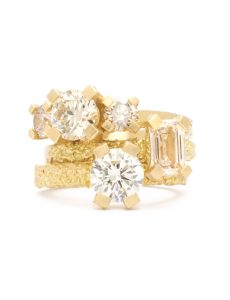
The Kimberley Process
You may have heard terms ‘conflict diamonds’ or ‘blood diamonds’ and may be considering lab-grown diamonds as an alternative.
However, Australia is one of the world’s biggest natural diamond producers, and we have strong regulations in place to ensure that natural diamonds traded here are conflict-free.
Australia is a participating country in the Kimberley Process, which is a system aimed at preventing the trade in conflict diamonds. So you can be reassured that a natural diamond piece purchased here will not be supporting conflicts overseas.
Heirloom Value
Lab grown diamonds may be more affordable than their natural counterparts, but unfortunately it is unlikely their value will hold over time.
Natural diamonds are some of the oldest objects most people will ever touch or own, and this rarity – as well as their inherent beauty – is what makes them special.
Flooding the market with lab-created stones may lead to over consumption.
At e.g.etal, we place reverence on natural diamonds as an organic, precious resource. Every diamond piece we create is a handmade, one of a kind object that is designed to be handed down and across many generations: retaining its uniqueness for a lifetime and beyond.

Diamond alternatives
If you’re still not sure whether a natural diamond is for you, perhaps consider some alternatives.
Australian parti sapphires are the most popular stone we sell at e.g.etal, both for their beauty and local provenance. These vibrant, multi-hued stones can be mined, but also sometimes fossicked here, leaving a lighter impact on the planet.
If the lure of diamonds still looms large, consider icy diamonds, cognac diamonds or salt and pepper diamonds. These ‘imperfect’ stones, which would have perviously been discarded for their ‘flaws’ are now being embraced and reclaimed for their uniqueness.
Whatever your choice, the most important consideration is that your jewellery piece has meaning and authenticity to you, and is a reflection of your values and personality.
